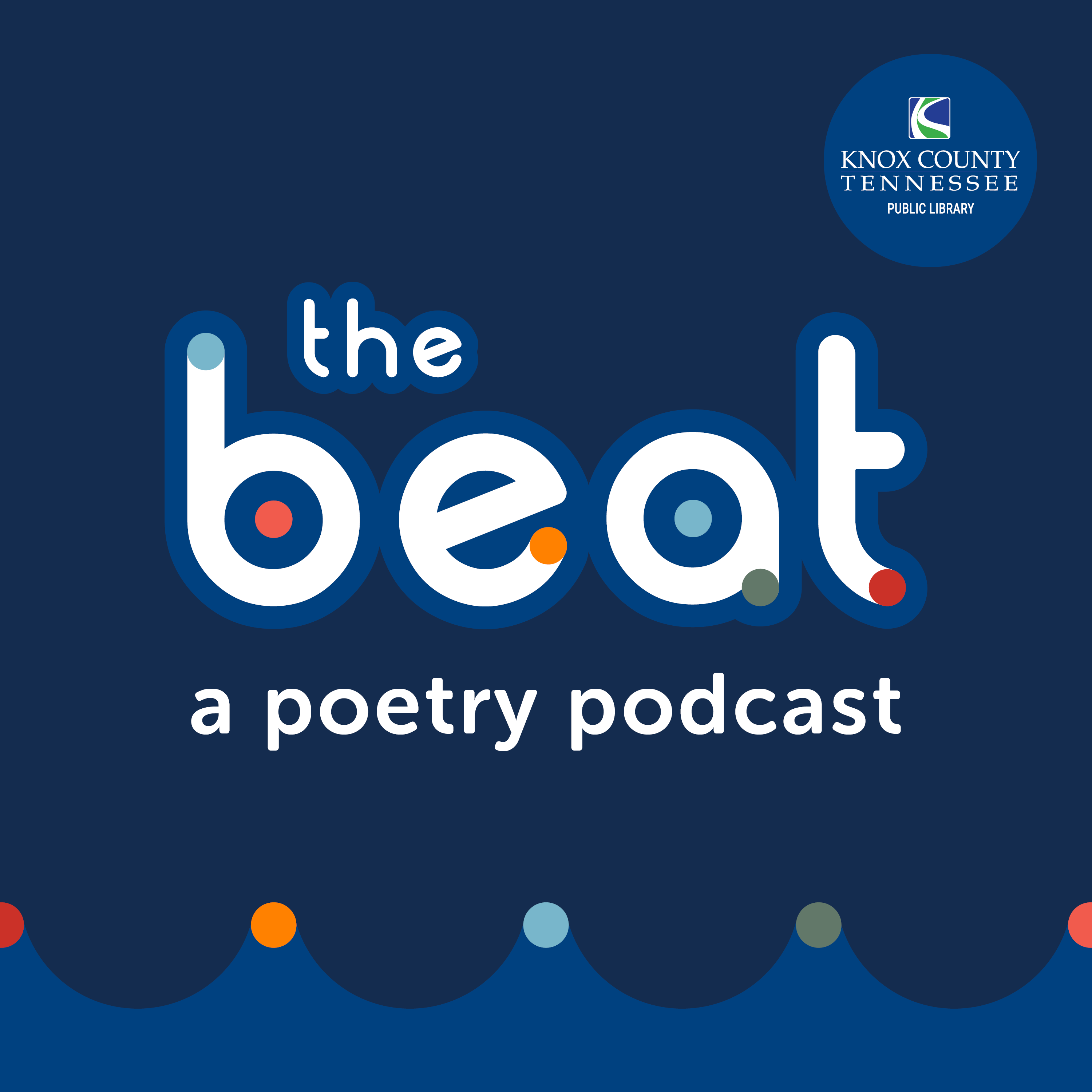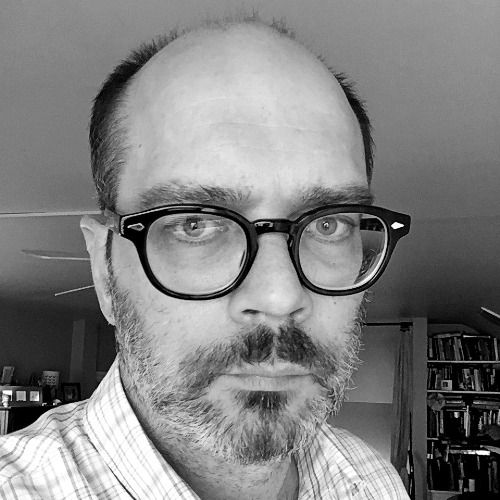Episode 5
Andrea Carter Brown and John Keats
Andrea Carter Brown was born in Paterson, New Jersey. Her poems have appeared in The Gettysburg Review, Ploughshares, Birmingham Poetry Review, The Mississippi Review, and many others. She is the author of September 12, which recently won the 2022 IPPY Silver Medal in Poetry from the Independent Publishers Group. Her other titles include the The Disheveled Bed, Domestic Karma, and Brook & Rainbow. Her poems have won the Five Points James Dickey Prize, the River Styx International Poetry Prize, and the PSA Gustav Davidson Memorial Prize. She was a founding editor of the poetry journal Barrow Street, and, since 2017, she has been Series Editor of The Word Works Washington Prize.
John Keats, one of the greatest of the Romantic Poets, was born October 31, 1795 in London. He published just three volumes before his death from tuberculosis at the age of 25. Some of his poems are among the most anthologized in the 20th Century, including “To Autumn,” “Ode to a Nightingale,” and “Ode on a Grecian Urn.”
Links:
Read "When I Have Fears that I May Cease to Be" by John Keats
Andrea Carter Brown
“An Interview with Andrea Carter Brown"
Brown’s poem "The Rock in the Glen” featured in an episode of Poems on Air
“Poet Mary Mackey Interviews Poet Andrea Carter Brown”
John Keats
Bio and articles on John Keats at the British Library
“The Cockney Romantics: John Keats and His Friends,” a lecture by Johnathan Bate
Mentioned in this episode:
KnoxCountyLibrary.org
Thank you for listening and sharing this podcast. Explore life-changing resources and events, sign up for newsletters, follow us on social media, and more through our website, www.knoxcountylibrary.org.
Transcript
Welcome to The Beat. Today we’ll hear four poems read by the poet Andrea Carter Brown. The first three, “After the Disaster: Fragments,” “Ars Poetica,” and “To the Dust,” are from her book September 12. On September the 11th, 2001, Brown was living a block away from the World Trade Center, and these poems deal with the aftermath of the 9/11 tragedy. We’ll also hear Brown read a fourth poem that was written by John Keats and first published in 1848. The Keats poem is called “When I have Fears.”
Andrea Carter Brown:
"After The Disaster: Fragments"
We are not starving.
We are wearing
shoes on our feet.
We have friends
to care for us; a roof
albeit borrowed,
over our heads. We are
husbands, wives
still; lovers, parents, children.
But the dust
of thousands has settled
over our living
rooms, an early snow
fall, in late summer,
the first winter
of the rest of our lives.
"Ars Poetica"
Let’s not romanticize bodies
falling. Others may use float
or dance; I refuse to pretend.
They were not graceful, quiet.
They fell unbelievably fast.
Straight down. Head first.
Some screamed. The sound
they made landing? Forget
thud. Louder than the wind.
"To The Dust"
In our eyes. In the corner of a pocket.
Under a bed. On top of books.
Behind them. Along a window sill.
Trapped by screens. Glass. Suspended
in the air. It sticks to needles, leaves.
To branches, bark, shrubs, mulch. To soil.
On puddles, it floats. In gutters. Down
streams to rivers flowing into the ocean
until currents, slowing, can carry the load
no longer. It drifts to the bottom of the sea,
waits as mud. Sediments compress, solidify,
a record in stone. A world as once it was.
I'm going to read John Keats' "When I Have Fears." Let me tell you a little about why. In nineteen eighty-seven, I spent the month of December in Rome. I had recently started writing poetry, although nothing had been published yet. With Keats very much on my mind, I visited the little museum on the Spanish Steps and his grave in the Protestant Cemetery. Not knowing any Italian, except the words for different types of pasta and coffee. I was very lonely, and I missed English. In desperation, I took myself to the bookstore in Rome that sells books in English. There I found an Everyman's Library Edition of Keats and spent eight thousand five hundred lire on it, about $7.50, which seemed and was a lot of money for a small paperback book at the time. Afternoons, when it had warmed up enough, I would sit overlooking the Forum, reading Keats aloud to myself. There, I first discovered "When I Have Fears," which spoke to me then and which has only come to resonate more deeply with everything life has thrown at me. The brittle piece of paper that marks its page is fraying from frequent returns.
John Keats' Sonnet No 10: "When I Have Fears that I May Cease to Be"
When I have fears that I may cease to be
Before my pen has glean’d my teeming brain,
Before high piled books, in charact’ry,
Hold like rich garners the full-ripen’d grain;
When I behold, upon the night’s starr’d face,
Huge cloudy symbols of a high romance,
And think that I may never live to trace
Their shadows, with the magic hand of chance;
And when I feel, fair creature of an hour!
That I shall never look upon thee more,
Never have relish in the faery power
Of unreflecting love!—then on the shore
Of the wide world I stand alone, and think
Till Love and Fame to nothingness do sink.
Alan May:
You just heard Andrea Carter Brown reading her poems “After the Disaster: Fragments,” “Ars Poetica,” and “To the Dust.” The fourth poem she read was “When I Have Fears” by John Keats. Brown was kind enough to record these poems for us at her home in Los Angeles. Andrea Carter Brown was born in Paterson, New Jersey (also home to William Carlos Williams and Allen Ginsberg). Her poems have appeared in The Gettysburg Review, Ploughshares, Birmingham Poetry Review, The Mississippi Review, and many others. She is the author of September 12, which recently won the 2022 IPPY Silver Medal in Poetry from the Independent Publishers Group. Her other titles include the The Disheveled Bed, Domestic Karma, and Brook & Rainbow. Her poems have won the Five Points James Dickey Prize, the River Styx International Poetry Prize, and the PSA's Gustav Davidson Memorial Prize. She was a founding editor of the poetry journal Barrow Street, and, since 2017, she has been Series Editor of The Word Works Washington Prize.
John Keats, one of the greatest of the Romantic Poets, was born on October 31st, seventeen ninety-five in London. He published just three volumes before his death from tuberculosis at the age of 25. Some of his poems are among the most anthologized in the 20th Century, including “To Autumn,” “Ode to a Nightingale,” and “Ode on a Grecian Urn.” Look for books by Andrea Carter Brown and John Keats in our online catalog. Also, look for links in the show notes. Please join us next time for The Beat.




